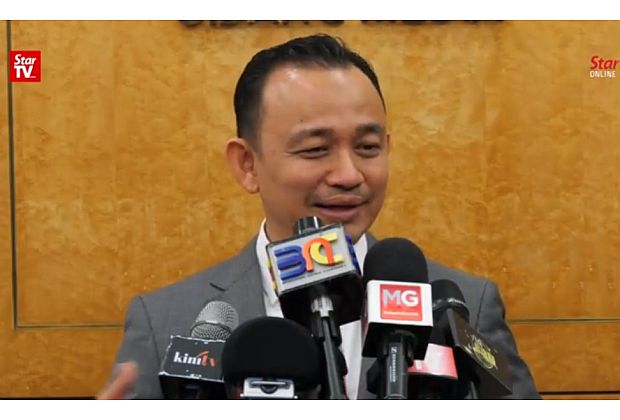
Published by The Star, image from The Star.
I recall the parable where a group of blind men were asked to describe an elephant. Each blind man touched a different part of the elephant, and thus each described something completely different – none of them succeeding in providing an accurate description.
One could imagine something similar with regards to Education Minister Dr Maszlee Malik, and the controversy surrounding his retention of the 90% bumiputera quota for matriculation students, and his association of this issue with the alleged cases of companies requiring Chinese language proficiency for racist reasons.
If you read the Malay press, you’d get one impression; if you read the English or Chinese press you’d get another.
Importantly, I think if you actually sat down to listen to or talk to Maszlee, you’d get yet another impression – one that will likely be quite different from either of the previous impressions.
On the whole, I personally think Maszlee’s heart is in the right place.
That said, I agree with academic Wong Chin Huat and columnist Commander (Ret) S Thayarapan when they say that fundamentally, this controversy has little or nothing to do with Maszlee himself.
Or, put in a slightly different way: Maszlee today is more a product of prevailing political structures, rather than a product of Maszlee the human being.
The structure and fault lines of partisan politics in Malaysia is the forest that we miss for the trees of petty conflicts with racial undertones.
From its very birth, Malaysian politics – and thus Malaysia itself – has been defined by racial segregation.
For the many years in our history where opposition politics were weak or non-existent, the primary political conflict was intra-coalition fighting, rather than inter-coalition fighting.
This often took the form of Umno, MCA and MIC jostling among themselves for ever bigger slices of the pie.
Perhaps even more relevant is the manner in which these parties essentially defined themselves in contrast to one another – Umno existed to “protect” Malays from the MCA Chinese, while MCA existed to “protect” Chinese from the Umno Malays.
It was no end of twisted realities. Nevertheless, these were the primary political contours that shaped our heart and soul as a nation for over half a century.
One year in, we are now seeing whether or not Pakatan Harapan is going down the same path.
My guess is that people who have known Maszlee a long time would say that he is almost the furthest away you can get from your stereotypical Umno racist.
Some mutual acquaintances have similarly described Umno Youth chief Dr Asraf Wajdi Dusuki as being much more reasonable and mild mannered in person, as opposed to his fiery, demagogue public persona.
If this is true, what drives these men to act the way they do and say the things they say?
The most obvious answer would seem to be that this is the role that their respective parties expect them to play.
This in turn is predicated on the raison d’etre of their parties – their reason for existing. If that reason is defined in racial terms, then from this flows a great many important things.
Many argued that the formation of a race based party like Parti Pribumi Bersatu Malaysia was necessary in order to win the 14th General Election (GE14).
Arguably, one result of this decision is Pakatan Harapan’s historical victory in those elections. Another result however – experienced more as a slow burn over time – is the perpetuation of old political fault lines based on race.
Many Malaysians were understandably happy with GE14’s results, but it appears that the bill has come. Making the choice to retain race-based politics has resulted in the almost inevitable resurgence of race-based conflicts over issues – the matriculation controversy being only the latest example.
While matriculation is thus much more symptom than cause, I will indulge in a few paragraphs to comment on a few of the surrounding issues.
With regards to the comparison to language requirements, I do believe there is some merit to the argument that it may be unwise to bring into the debate issues that are not wholly related. Doing so is one of the surest signs that someone is slipping back into the racial conflicts that defined the old Malaysia.
This could set off a chain reaction where every single controversy with even the slightest racial tint starts being brought into the argument.
That said, as far as language requirements go, perhaps the reasonable solution is that language requirements are reasonable only where it is truly logical given the nature of the company or business.
If a company does extensive business with France or has a customer base consisting almost entirely of French speakers, then surely it is reasonable to make it a requirement that employees be able to speak French.
On the other hand, if there is say absolutely no logical reason why a company – given the nature of its business – would require an employee to be able to speak Chinese, then surely it is just as unreasonable for them to make speaking Chinese a language requirement. That would be racist.
In this controversy surrounding language requirements, it would also be wise to have a solid base of accurate data before engaging in extensive debate. As of now, it does not seem clear whether this is a widespread problem, or an extremely rare one. Arguments must be based on verifiable data; failing which, it becomes self-serving hubris.
The other brief comment on the matriculation issue is the manner in which the Education Ministry has stated that despite the increase in matriculation spots, students taking STPM will not be affected, and criteria for entry into university is based entirely on merit. Said merit is apparently based primarily on CGPA scores from both matriculation programmes and STPM.
There appears to be some logical disconnect here. If CGPA scores from matriculation and STPM are weighted the same, this implies that the two courses are of the same academic standard.
If this is true, then this negates the raison d’etre of matriculation in the first place – why not just make everyone take STPM?
If this is not true, and one of these programmes is easier than the other, then surely it is facetious to suggest that comparing these two CGPAs side by side – when in fact they are apples and oranges – will produce a meritocracy that is completely blind to race, religion and background.
I have a feeling that deep down, Maszlee is a man with intentions many Malaysians would find laudable, whatever the colour of their skin. That said, we cannot help but remember the saying that the road to hell is paved with good intentions.
When a minister lets political considerations overcome his own moral compass, it is a disservice to his ministry, the nation, and last but not least, his own personal integrity.
Nathaniel Tan is Director of Media & Communications at EMIR Research, an independent think-tank focused on strategic policy recommendations based upon rigorous research.

